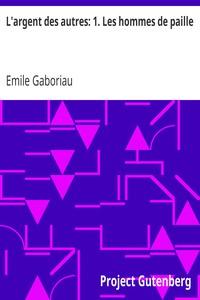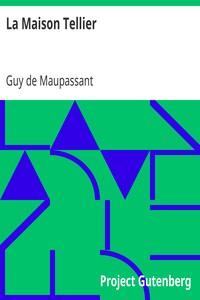|
|
Read this ebook for free! No credit card needed, absolutely nothing to pay.Words: 102021 in 11 pages
This is an ebook sharing website. You can read the uploaded ebooks for free here. No credit cards needed, nothing to pay. If you want to own a digital copy of the ebook, or want to read offline with your favorite ebook-reader, then you can choose to buy and download the ebook.

: The Autobiography of a Journalist Volume II by Stillman William James - Stillman William James 1828-1901; Journalists Biography@FreeBooksTue 06 Jun, 2023 CHAP. XL. ADOWAH AND ITS CONSEQUENCES CONSULAR LIFE IN CRETE Cholera was raging all over the Levant, and there was no direct communication with any Turkish port without passing through quarantine. In the uncertainty as to getting to my new post by any route, I decided to leave my wife and boy at Rome, with a newcomer,--our Lisa, then two or three months old,--and go on an exploring excursion. Providing myself with a photographic apparatus, I took steamer at Civita Vecchia for Peiraeus. Arrived at Athens I found that no regular communication with any Turkish port was possible, and that the steamers to Crete had been withdrawn, though there had not been, either at that or at any previous time, a case of cholera in Crete; but such was the panic prevailing in Greece that absolute non-intercourse with the island and the Turkish empire had been insisted on by the population. People thought I might get a chance at Syra to run over by a sailing-boat, so I went to Syra. But no boat would go to Crete, because the quarantine on the return was not merely rigorous but merciless, and exaggerate to an incredible severity. No boat or steamer was admitted to enter the port coming from any Turkish or Egyptian port, though with a perfectly clean bill of health, and all ships must make their quarantine at the uninhabited island of Delos. Such was the panic that no one would venture to carry provisions to that island while there was a ship in quarantine, and during the fortnight I waited at Syra an English steamer without passengers, and with a clean bill of health, having finished her term, was condemned to make another term of two weeks, because a steamer had come in with refugees from Alexandria, and had anchored in the same roadstead. Mr. Lloyd, the English consul, protested and insisted on the steamer being released, and the people threatened to burn his house over his head if he persisted; but, as he did persist, the ship was finally permitted to communicate with Syra, but not to enter the harbor, and was obliged to leave without discharging or taking cargo, after being a month in quarantine. At last an English gentleman named Rogers, who lived at Syra, an ex-officer of the English army, offered to carry me over to Canea on his yacht of twelve tons, and take the consequences. I found the consulate, like the position in Rome, deserted, the late consul having been a Confederate who had gone home to enlist, I suppose, for he had been gone a long time, and the archives did not exist. There was nothing to take over but a flag, which the vice-consul, a Smyrniote Greek, and an honest one, as I was glad to find, but who knew nothing of the business of a consul, had been hoisting on all f?te days for two or three years, waiting for a consul to come. I was received with great festivity by my prot?g?s, the family of the vice-consul, and with great ceremony by the pasha, a renegade Greek, educated in medicine by the Sultana Valide, and in the enjoyment of her high protection; an unscrupulous scoundrel, who had grafted on his Greek duplicity all the worst traits of the Turk. As, with the exception of the Italian consul, Sig. Colucci, not one of the persons with whom I acted or came in contact in my official residence survives, unless it may be the commander of the Assurance, an English gunboat, of whose subsequent career I know nothing, I shall treat them all without reserve. Ismael was cruel and dishonorable; he violated his given word and pledges without the slightest regard for his influence with the population. I have since seen a good deal of Turkish maladministration, and I am of the opinion that more of the oppression of the subject populations is due to the bad and thieving instincts of the local officials than directly to the Sublime Porte, and that the simplest way of bringing about reforms is in the Powers asserting a right of approbation of all nominations to the governorships throughout the whole empire. When, as at certain moments in the long struggle of which I am now beginning the history, I came in contact with the superior officers of the Sultan, I found a better sense of the policy of justice than obtained with the provincial functionaries. Ismael Pasha had only one object,--to do anything that would advance his promotion and wealth. He regarded a foreign consul, with the right of exterritoriality, as a hostile force in the way of his ambitions, and, therefore, until he found that one was not to be bought or worried into indifference to the injustice perpetrated around him, he treated him as an enemy. I always liked a good fight in a good cause, and I had no hesitation in taking up the glove that Ismael threw down, and my defiance of all his petty hostile manoeuvres was immediately observed by the acute islanders and put down to my credit and exaltation in the popular opinion. The discontent against his measures was profound, and the winter of my first year in the island was one of great distress. Ismael had laid new and illegal taxes on straw, wine, all beasts of burden, which, with oppressive collection of the habitual tithes , and short crops for two years past, made life very hard for the Cretan. Even this was not enough; justice was administered with scandalous venality and disregard of the existing laws and procedure. Not long after my arrival at Canea, the hospital physician, a humane Frenchman, informed me that an old Sphakiot had just died in the prison, where he had been confined for a long time in place of his son, who had been guilty of a vendetta homicide and had escaped to the Greek islands. According to a common Turkish custom, the pasha had ordered his nearest relative to be arrested in his place. This was the old father, who lay in prison till he died. The capricious cruelty of Ismael was beyond anything I had ever heard of. One day I was out shooting and was attacked by a dog whom I saluted with a charge of small birdshot, on which the owner made complaint to the pasha that I had peppered accidentally one of his children. Ismael spread this report through the town, learning which I made him an official visit demanding a rectification and examination of the child, which was found without a scratch. The pasha, furious at the humiliation of exposure, then threw the man into prison, and as he, Adam-like, accused his wife of concocting the charge, he ordered her also to prison for two weeks, without the slightest investigation, leaving three small children helpless. I protested, and insisted on the release of the man, who had only obeyed the wish of the pasha in making the charge against me. Having no occupation but archaeological research and photography, I decided to make a series of expeditions into the mountain district, and to begin with a visit to the famous strongholds of Sphakia. The pasha protested, but as I had a right to go where I pleased, I paid no attention to his protests, and he then went to the other extreme, and offered to provide me with horses, which offer I unfortunately accepted. The horse I rode and the groom the pasha sent with him were equally vicious. The man, when we saddled up the first day out, put the saddle on so loosely that as we mounted the first steep rocky slope the saddle slipped over the horse's tail, carrying me with it, and the horse walked over me, breaking a rib and bruising me severely, and then tried to kick my brains out. I remounted and kept on, but that night the pain of the broken rib was such, and the fever so high, that I was obliged to give up the journey and go back to Canea. I found that the pasha had anticipated a disaster, and heard of it with great satisfaction. On our arrival at the city gates, returning to Retimo, we had an experience of the mediaeval ways of the island, finding the gates locked and no guard on duty. We called and summoned,--for a consul had always the privilege of having the gates opened to him at any hour of day or night,--but in vain, until I devised a summons louder than our sticks on the gate, and, taking the hugest stone I could lift, threw it with all my force repeatedly at the gate, and so aroused the guard, who went to the governor and got the keys, which were kept under his pillow. The next day we had an affair with Turkish justice which illustrates the position of the consuls in Turkey so well that I tell it fully. The dragoman and I had gone off to shoot rock-pigeons in one of the caves by the seashore, leaving at home my breech-loading hunting rifle, then a novelty in that part of the world. When we got home at night the city was full of a report that some one in our house had shot a Turkish boy through the body. I at once made an investigation and found that the facts were that a boy coming to the town, at a distance of about half a mile from the gate, had been hit by a rifle ball which had struck him in the chest and gone out at the back. No one had heard a shot, and the sentinel at our doors, set nominally for honor, but really to watch the house, had not heard any sound. The boy was in no danger, and he declared that the bullet had struck him in the back and gone out by the chest. My Canea dragoman, who was reading in the house all the time we were gone, had heard nothing and knew nothing about it; but, on examining the rifle, I found that some one had tried to wipe it out and had left a rag sticking half way down, the barrel. This pointed to a solution, and an investigation made the whole thing clear. The dragoman's man-servant had taken the gun out on the balcony which looked out on the port, and fired a shot at a white stone on the edge of the wall, in the direction of the village where the boy was hit. I knew perfectly well that the servant was guilty, but I knew, too, that for accidental wounding he would have been punished by indefinite confinement in a Turkish prison, as if he had shot the boy intentionally. The refusal of the pasha to permit me to judge the case, as I had a right to do, he being my prot?g?, left me only the responsibility of the counsel for the prisoner, and I determined to acquit him if possible. The bullet had, fortunately, gone through the boy and could not be found; and, as the wound, though through the lungs, was healing in a most satisfactory manner, and would leave no effects, I had no scruples in preventing a conviction that would have punished an involuntary offense by a terrible penalty, which all who know anything of a Turkish prison can anticipate. The governor-general was very angry, and the kaimakam was severely reprimanded, but they could not help themselves. My position under the capitulations was secure, but it made the hostility between the pasha and myself the more bitter. The accumulated oppressions of Ismael Pasha had finally the usual effect on the Cretans, and they began to agitate for a petition to the Sultan, a procedure which time had shown to be absolutely useless as an appeal against the governor; and, while the agitation was in this embryonic condition, I decided to go back to Rome and get my wife and children. We were still in the state of siege by the cholera, and there was still no communication with the Greek islands, so that I accepted the offer made by my English colleague, the amiable and gratefully remembered Charles H. Dickson, of whose qualities I shall have to say more in the pages to come, of a passage on a Brixham schooner to Zante. Sailing with a clean bill of health, we had to make a fortnight's quarantine in the roadstead, and, taking passage on the Italian postal steamer to Ancona, I was obliged, on landing, to make another term of two weeks in the lazaretto, though we had again a clean bill; and, on arriving on the Papal frontier by the diligence, we had to undergo a suffocating fumigation, and all this in spite of the fact that no one of the company I had traveled with had been at a city where cholera had existed at any time within three months, or on a steamer which had touched where the cholera was prevalent. At that time there was no railway northward from Rome, and traveling was conducted on the system of the sixteenth century, except for sea travel. Free books android app tbrJar TBR JAR Read Free books online gutenberg More posts by @FreeBooks
: Le Docteur Ox by Verne Jules - Adventure stories French; Ballooning Fiction; Mountaineering; Blanc Mont (France and Italy) FR Littérature@FreeBooksTue 06 Jun, 2023

: L'argent des autres: 1. Les hommes de paille by Gaboriau Emile - Detective and mystery stories; French fiction 19th century Detective Fiction; FR Littérature@FreeBooksTue 06 Jun, 2023
|
Terms of Use Stock Market News! © gutenberg.org.in2025 All Rights reserved.






